- Home
- Nora Roberts
The Next Always
The Next Always Read online
To John Reese,
best job boss ever,
and the crew of Inn BoonsBoro
The song and the silence in the heart,
That in part are prophecies, and in part
Are longings wild and vain.
—LONGFELLOW
CHAPTER ONE
THE STONE WALLS STOOD AS THEY HAD FOR MORE THAN two centuries, simple, sturdy, and strong. Mined from the hills and the valleys, they rose in testament to man’s inherent desire to leave his mark, to build and create.
Over those two centuries man married the stone with brick, with wood and glass, enlarging, transforming, enhancing to suit the needs, the times, the whims. Throughout, the building on the crossroads watched as the settlement became a town, as more buildings sprang up.
The dirt road became asphalt; horse and carriage gave way to cars. Fashions flickered by in the blink of an eye. Still it stood, rising on its corner of The Square, an enduring landmark in the cycle of change.
It knew war, heard the echo of gunfire, the cries of the wounded, the prayers of the fearful. It knew blood and tears, joy and fury. Birth and death.
It thrived in good times, endured the hard times. It changed hands and purpose, yet the stone walls stood.
In time, the wood of its graceful double porches began to sag. Glass broke; mortar cracked and crumbled. Some who stopped at the light on the town square might glance over to see pigeons flutter in and out of broken windows and wonder what the old building had been in its day. Then the light turned green, and they drove on.
Beckett knew.
He stood on the opposite corner of The Square, thumbs tucked into the pockets of his jeans. Thick with summer, the air held still. With the road empty, he could have crossed Main Street against the light, but he continued to wait. Opaque blue tarps draped the building from roof to street level, curtaining the front of the building. Over the winter it had served to hold the heat in for the crew. Now it helped block the beat of the sun—and the view.
But he knew—how it looked at that moment, and how it would look when the rehab was complete. After all, he’d designed it—he, his two brothers, his mother. But the blueprints bore his name as architect, his primary function as a partner in Montgomery Family Contractors.
He crossed over, his tennis shoes nearly silent on the road in the breathless hush of three a.m. He walked under the scaffolding, along the side of the building, down St. Paul, pleased to see in the glow of the streetlight how well the stone and brick had cleaned up.
It looked old—it was old, he thought, and that was part of its beauty and appeal. But now, for the first time in his memory, it looked tended.
He rounded the back, walked over the sunbaked dirt, through the construction rubble scattered over what would be a courtyard. Here the porches that spanned both the second and third stories ran straight and true. Custom-made pickets—designed to replicate those from old photographs of the building, and the remnants found during excavation—hung freshly primed and drying on a length of wire.
He knew his eldest brother, Ryder, in his role as head contractor, had the rails and pickets scheduled for install.
He knew because Owen, the middle of the three Montgomery brothers, plagued them all over schedules, calendars, projections, and ledgers—and kept Beckett informed of every nail hammered.
Whether he wanted to be or not.
In this case, he supposed as he dug out his key, he wanted to be—usually. The old hotel had become a family obsession.
It had him by the throat, he admitted as he opened the unfinished and temporary door to what would be The Lobby. And by the heart—and hell, it had him by the balls. No other project they’d ever worked on had ever gotten its hooks in him, in all of them, like this. He suspected none ever would again.
He hit the switch, and the work light dangling from the ceiling flashed on to illuminate bare concrete floors, roughed-in walls, tools, tarps, material.
It smelled of wood and concrete dust and, faintly, of the grilled onions someone must have ordered for lunch.
He’d do a more thorough inspection of the first and second floors in the morning when he had better light. Stupid to have come over at this hour anyway, when he couldn’t really see crap, and was dog tired. But he couldn’t resist it.
By the balls, he thought again, passing under a wide archway, its edges of stone still rough and exposed. Then, flipping on his flashlight, he headed toward the front and the work steps that led up.
There was something about the place in the middle of the night, when the noise of nail guns, saws, radios, and voices ended, and the shadows took over. Something not altogether quiet, not altogether still. Something that brushed fingers over the back of his neck.
Something else he couldn’t resist.
He swept his light around the second floor, noted the brown-bag backing on the walls. As always, Owen’s report had been accurate. Ry and his crew had the insulation completed on this level.
Though he’d intended to go straight up, he roamed here with a grin spreading over his sharply boned face, the pleasure of it lighting eyes the color of blue shadows.
“Coming along,” he said into the silence in a voice gravelly from lack of sleep.
He moved through the dark, following his beam of light, a tall man with narrow hips, the long Montgomery legs, and the waving mass of brown hair with hints of chestnut that came down from the Riley—his maternal side.
He had to remind himself that if he kept poking around he’d have to get up before he got to bed, so he climbed up to the third floor.
“Now that’s what I’m talking about.” Pure delight scattered thoughts of sleep as he traced a finger down the taped seam of freshly hung drywall.
He played his light over the holes cut out for electric, moved into what would be the innkeeper’s apartment, and noted the same for plumbing in the kitchen and bath. He spent more time wandering through what would be their most elaborate suite, nodding approval at the floating wall dividing the generous space in the bath.
“You’re a frigging genius, Beck. Now, for God’s sake, go home.”
But giddy with fatigue and anticipation, he took one more good look before he made his way down the steps.
He heard it as he reached the second floor. A kind of humming—and distinctly female. As the sound reached him, so did the scent. Honeysuckle, sweet and wild and ripe with summer.
His belly did a little dance, but he held the flashlight steady as he swept it down the hall into unfinished guest rooms. He shook his head as both sound and scent drifted away.
“I know you’re here.” He spoke clearly, and his voice echoed back to him. “And I guess you’ve been here for a while. We’re bringing her back, and then some. She deserves it. I hope to hell you like it when she’s done because, well, that’s the way it’s going to be.”
He waited a minute or two, fanciful enough—or tired enough—to imagine whoever, or whatever, inhabited the place settled on a wait-and-see mode.
“Anyway.” He shrugged. “We’re giving her the best we’ve got, and we’re pretty damn good.”
He walked down, noted the work light no longer shone. Beckett turned it on again, switched it back off with another shrug. It wouldn’t be the first time the current resident had messed with one of them.
“Good night,” he called out, then locked up.
This time he didn’t wait for the light, but crossed diagonally. Vesta Pizzeria and Family Restaurant spread over another corner of The Square, with his apartment and office above. He walked down the sloping sidewalk to the back parking lot, grabbed his bag from the cab of his truck. Deciding he’d murder anyone who called him before eight a.m., Beckett unlocked the stairwell, then climbed past the restaurant level to hi
s door.
He didn’t bother with the light, but moved by memory and the backwash of streetlights through the apartment. He stripped by the bed, letting the clothes drop.
He flopped facedown on the mattress, and fell asleep thinking of honeysuckle.
THE CELL PHONE he’d left in his jeans pocket went off at six fifty-five.
“Son of a bitch.”
He crawled out of bed, over the floor, dug his phone out of the pocket. Realized he was holding his wallet up to his ear when nobody answered.
“Shit.”
Dropped the wallet, fumbled out the phone.
“What the hell do you want?”
“Good morning to you, too,” Owen responded. “I’m walking out of Sheetz, with coffee and donuts. They’ve got a new clerk on the morning shift. She’s pretty hot.”
“I’ll kill you with a hammer.”
“Then you won’t get any coffee and donuts. I’m on my way to the site. Ry should be there already. Morning meeting.”
“That’s at ten.”
“Didn’t you read the text I sent you?”
“Which one? I’m gone two days and you sent me a million freaking texts.”
“The one that told you we rescheduled for seven fifteen. Put some pants on,” Owen suggested and hung up.
“Hell.”
He grabbed a two-minute shower, and put some pants on.
The clouds that rolled in overnight had managed to lock the heat in, so stepping outside was like swimming fully dressed through a warm river.
He heard the thump of nail guns, the jingle of music, the whine of saws as he crossed the street. From inside, somebody laughed like a lunatic.
He turned the corner of the building as Owen pulled his truck into the parking lot behind the projected courtyard. The truck gleamed from a recent wash, and the silver toolboxes on the sides of the bed sparkled.
Owen stepped out. Jeans, a white T-shirt tucked into his belt—and on the belt the damn phone that did everything but kiss him good night (and Beckett wasn’t taking bets against that)—marginally scuffed work boots. His bark brown hair sat tidily on his head. He’d obviously had time to shave his pretty face, Beckett thought resentfully.
He shot Beckett a grin, and Beckett imagined the eyes behind those bronze lenses were cheerful and alert.
“Give me the damn coffee.”
Owen took a tall go-cup, marked with a B, from its slot in the tray.
“I didn’t get in till three.” Beckett took the first, deep, lifesaving gulp.
“Why?”
“I didn’t get out of Richmond until close to ten, then I hit a parking lot on 95. And don’t, just do not tell me I should’ve checked the traffic report before getting on. Give me a fucking donut.”
Owen opened the enormous box, and the smell of yeast, sugar, and fat oozed into the thick air. Beckett grabbed a jelly, wolfed half of it, washed it down with more coffee.
“Pickets are going to look good,” Owen said in his easy way. “They’re going to be worth the time and money.” He cocked his head toward the truck on the other side of his. “Drywall’s up on the third floor. They’re going to get the second coat of mud on today. Roofers ran out of copper, so they’re going to fall a little behind schedule on that, but they’re working on the slate until the material comes in.”
“I can hear that,” Beckett commented as the stone saws shrilled.
Owen continued the updates as they crossed to the lobby door, and the coffee woke up Beckett’s brain.
The noise level spiked, but now that Beckett had some sugar and caffeine in his system, it sounded like music. He exchanged greetings with a couple of the crew hanging insulation, then followed Owen through the side arch and into what would be the laundry, and currently served as an on-site office.
Ryder stood scowling down at blueprints spread over a table of plywood on sawhorses. Dumbass, his homely and purehearted mutt—and constant companion—sprawled snoring at his feet.
Until a whiff of donut had his eyes popping open, his scruffy tail thumping. Beckett broke off a bite of donut, tossed it, and the dog nipped it neatly out of the air.
D.A. saw no logical purpose in the fetching of sticks or balls. He concentrated his skills on fielding food of any kind.
“If you’re going to ask for another change, I’ll kill you instead of Owen.”
Ryder only grunted, held out a hand for coffee. “We need to move this panel box, then we can box in this space here, use it for second-floor utility.”
Beckett took another donut, considered as Ryder ran through a handful of other changes.
Little tweaks, Beckett thought, that wouldn’t hurt and would probably improve. Ryder was, after all, the one of them who lived most intimately with the building. But when Ryder moved to eliminating the coffered dining room ceiling—a thin bone of contention between them—Beckett dug in.
“It goes in, just as on the plans. It makes a statement.”
“It doesn’t need to make a statement.”
“Every room in this place is going to make a statement. The dining room makes one with—among other things, a coffered ceiling. It suits the room, plays off the panels we’re making for the side of the windows. The depth of the windows, the ceiling, the arch of stone on the back wall.”
“Pain in the ass.” Ryder scanned the donuts, opted for a cinnamon twist. He didn’t so much as glance toward the madly thumping tail as he tore off the end, flipped it into the air.
D.A.’s teeth snapped together as he caught it.
“How’d it go down in Richmond?”
“The next time I volunteer to design and help build a covered deck for a friend, knock me unconscious.”
“Always a pleasure.” Ryder grinned around the donut. His hair, a deep dense brown that edged toward black, sprang out from under his paint-stained MFC gimme cap. His eyebrows lifted over eyes of gold-flecked green. “I thought you were mostly doing it to get into Drew’s sister’s pants.”
“It was part of the motivation.”
“How’d that go for you?”
“She hooked up with somebody a couple weeks ago, a detail nobody bothered to pass on to me. I never even saw her. So I’m bunked down in Drew’s spare room trying to pretend I can’t hear him and Jen fighting every damn night, and listening to him complain how she’s making his life hell every damn day.”
He drained the coffee. “The deck looks good though.”
“Now that you’re back I could use some help on the built-ins for The Library,” Owen told him.
“I’ve got some catching up to do, but I can give you some time after noon.”
“That’ll work.” Owen handed him a file. “Mom’s been down to Bast’s,” he said, speaking of the furniture store down the street. “Copies of what she’s after—with dimensions, and the room they’re for. She wants you to draw it up.”
“I just did the last batch before I went to Drew’s. How fast can she shop?”
“She’s meeting Aunt Carolee there tomorrow. They’re talking fabrics, so she wants to see if and how what she’s got going fits ASAP. You’re the one who took off a couple days hoping to get laid,” Owen reminded him.
“Struck out, too.”
“Shut up, Ry.” Beckett tucked the file under his arm. “I’d better get started.”
“Don’t you want to go up, take a look?”
“I did a walk-through last night.”
“At three in the morning?” Owen asked.
“Yeah, at three in the morning. It’s looking good.”
One of the crew stuck his head in. “Hey, Beck. Ry, the drywaller’s got a question up in five.”
“Be there in a minute.” Ryder pulled a handwritten list off his clipboard, passed it to Owen. “Materials. Go on and order. I want to get the front porch framed in.”
“I’ll take care of it. Do you need me around here this morning?”
“We’ve got a few million pickets to prime, a mile or two of insulation to hang, and w
e’re decking the second-story porch, front. What do you think?”
“I think I’ll get my tool belt after I order this material.”
“I’ll swing back through before I head out to the shop this afternoon,” Beckett told them, then got out before he ended up with a nail gun in his hand.
AT HOME, HE stuck a mug under his coffee machine, checked the level of the water and beans. While it chomped the beans, he went through the mail Owen had stacked on the kitchen counter. Owen had also left sticky notes, Beckett thought with a shake of his head, listing the times he’d watered the plants. Though he hadn’t asked Owen—or anyone—to deal with those little chores while he’d been gone, it didn’t surprise him to find them done.
If you were dealing with a flat tire or a nuclear holocaust, you could depend on Owen.
Beckett dumped the junk mail in the recycle bin, took what mail needed attention and the coffee through to his office.
He liked the space, which he’d designed himself when the Montgomery family bought the building a few years before. He had the old desk—a flea market find he’d refinished—facing Main Street. Sitting there, he could study the inn.
He had land just outside of town, and plans for a house he’d designed, barely started, and kept fiddling with. But other projects always bumped it down the line. He couldn’t see the hurry, in any case. He was happy enough with his Main Street perch over Vesta. Plus it added the convenience of calling down if he wanted a slice while he worked, or just going downstairs if he wanted food and company.
He could walk to the bank, the barber, to Crawford’s if he wanted a hot breakfast or a burger, to the bookstore, the post office. He knew his neighbors, the merchants, the rhythm in Boonsboro. No, no reason to hurry.
He glanced at the file Owen had given him. It was tempting to start right there, see what his mother and aunt had come up with. But he had other work to clear up first.
He spent the next hour paying bills, updating other projects, answering emails he’d neglected when in Richmond.
He checked Ryder’s job schedule. Owen insisted they each have an updated copy every week, even though they saw or spoke to each other all the damn time. Mostly on schedule, which, considering the scope of the project, equaled a not-so-minor miracle.
He glanced at his thick white binder, filled with cut sheets, computer copies, schematics—all arranged by room—of the heating and air-conditioning system, the sprinkler system, every tub, toilet, sink, faucet, the lighting, tile patterns, appliances—and the furniture and accessories already selected and approved.
It would be thicker before they were done, so he’d better see what his mother had her eye on. He opened the file, spread out the cut sheets. On each, his mother listed the room the piece was intended for by initials. He knew Ryder and the crew still worked by the numbers they’d assigned to the guest rooms and suites, but he knew J&R—second floor, rear, and one of the two with private entrances and fireplaces—stood for Jane and Rochester.
His mother’s concept, and one he liked a lot, had been to name the rooms for romantic couples in literature—with happy endings. She’d done so for all but the front-facing suite she’d decided to dub The Penthouse.
He studied the bed she wanted, and decided the wooden canopy style would’ve fit nicely into Thornfield Hall. Then he grinned at the curvy sofa, the fainting couch she’d noted should stand at the foot of the bed.

 A Little Magic
A Little Magic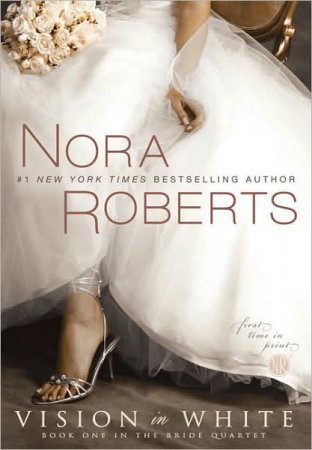 Vision in White
Vision in White True Betrayals
True Betrayals The Next Always
The Next Always A Man for Amanda
A Man for Amanda Born in Fire
Born in Fire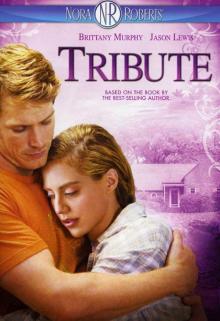 Tribute
Tribute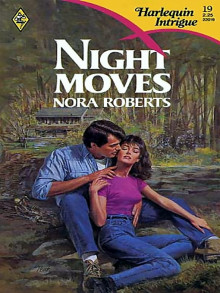 Night Moves
Night Moves Dance Upon the Air
Dance Upon the Air The Name of the Game
The Name of the Game Jewels of the Sun
Jewels of the Sun River's End
River's End Public Secrets
Public Secrets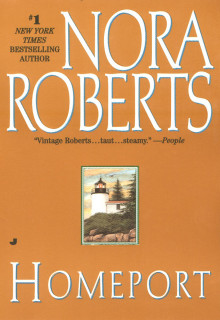 Homeport
Homeport Private Scandals
Private Scandals The Witness
The Witness Blithe Images
Blithe Images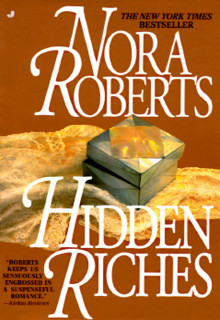 Hidden Riches
Hidden Riches Key of Light
Key of Light Divine Evil
Divine Evil High Noon
High Noon Blue Dahlia
Blue Dahlia Sea Swept
Sea Swept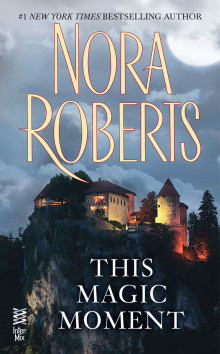 This Magic Moment
This Magic Moment Year One
Year One A Little Fate
A Little Fate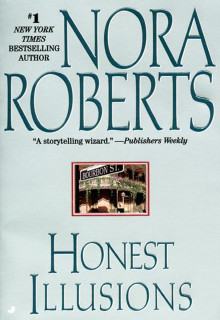 Honest Illusions
Honest Illusions The Reef
The Reef Shelter in Place
Shelter in Place The Hollow
The Hollow Holding the Dream
Holding the Dream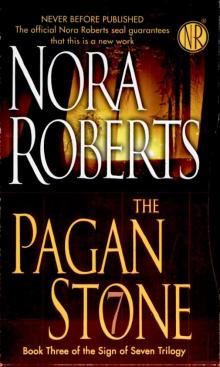 The Pagan Stone
The Pagan Stone Savour the Moment
Savour the Moment The Perfect Hope
The Perfect Hope Island of Glass
Island of Glass Happy Ever After
Happy Ever After Bed of Roses
Bed of Roses Stars of Fortune
Stars of Fortune Dark Witch
Dark Witch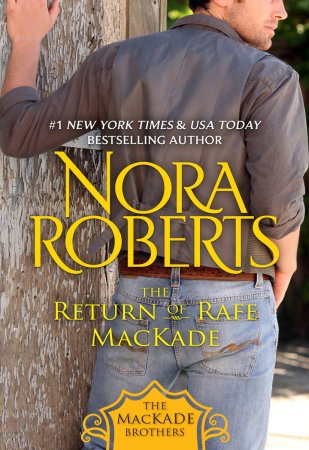 The Return of Rafe MacKade
The Return of Rafe MacKade Chesapeake Blue
Chesapeake Blue The Perfect Neighbor
The Perfect Neighbor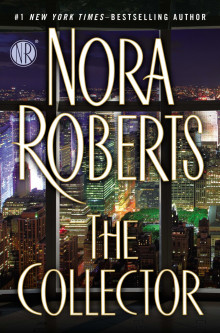 The Collector
The Collector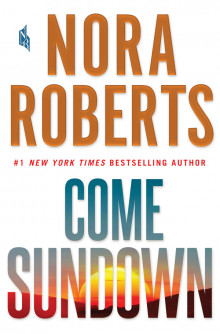 Come Sundown
Come Sundown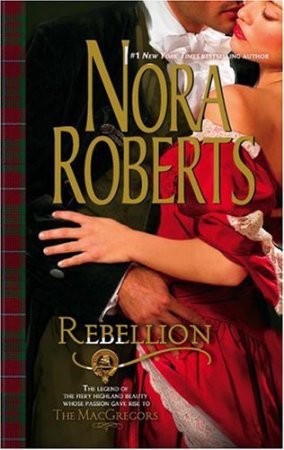 Rebellion
Rebellion Affaire Royale
Affaire Royale Daring to Dream
Daring to Dream Bay of Sighs
Bay of Sighs Blood Magick
Blood Magick Angels Fall
Angels Fall Captivated
Captivated The Last Boyfriend
The Last Boyfriend Irish Thoroughbred
Irish Thoroughbred Inner Harbor
Inner Harbor The Right Path
The Right Path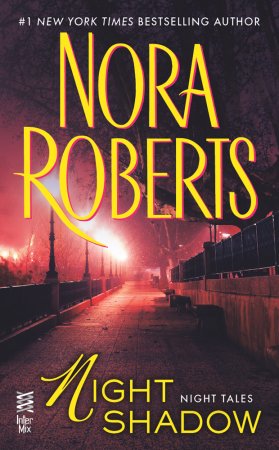 Night Shadow
Night Shadow The Heart of Devin MacKade
The Heart of Devin MacKade Shadow Spell
Shadow Spell The Playboy Prince
The Playboy Prince The Fall of Shane MacKade
The Fall of Shane MacKade Rising Tides
Rising Tides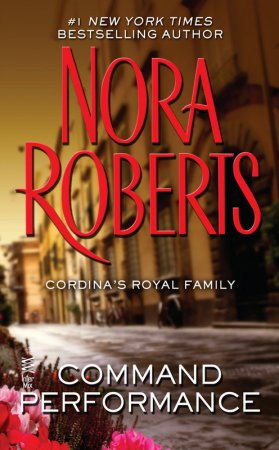 Command Performance
Command Performance Hidden Star
Hidden Star Cordina's Crown Jewel
Cordina's Crown Jewel The MacGregor Brides
The MacGregor Brides The Pride of Jared MacKade
The Pride of Jared MacKade Born in Ice
Born in Ice Whiskey Beach
Whiskey Beach The Last Honest Woman
The Last Honest Woman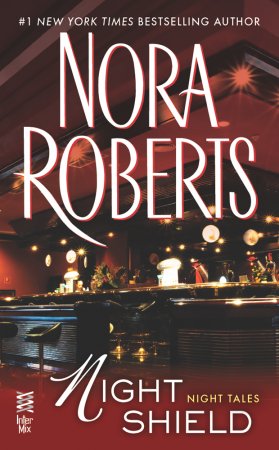 Night Shield
Night Shield Born in Shame
Born in Shame Secret Star
Secret Star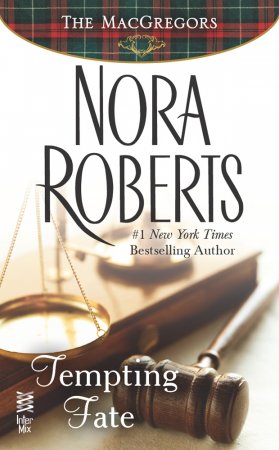 Tempting Fate
Tempting Fate Nightshade
Nightshade The Obsession
The Obsession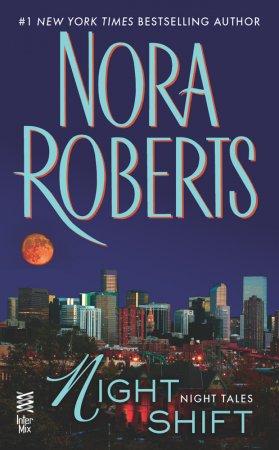 Night Shift
Night Shift Playing The Odds
Playing The Odds Tears of the Moon
Tears of the Moon One Man's Art
One Man's Art The MacGregor Groom
The MacGregor Groom Irish Rebel
Irish Rebel Morrigan's Cross
Morrigan's Cross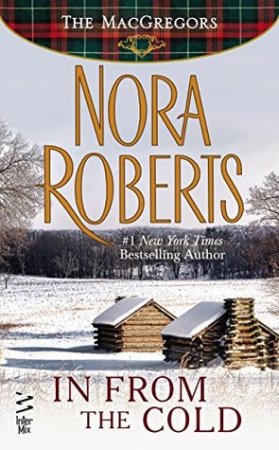 In From The Cold
In From The Cold Night Smoke
Night Smoke Finding the Dream
Finding the Dream Red Lily
Red Lily The Liar
The Liar Montana Sky
Montana Sky Heart of the Sea
Heart of the Sea All The Possibilities
All The Possibilities Opposites Attract
Opposites Attract Captive Star
Captive Star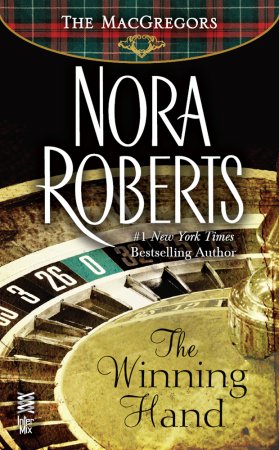 The Winning Hand
The Winning Hand Key of Valor
Key of Valor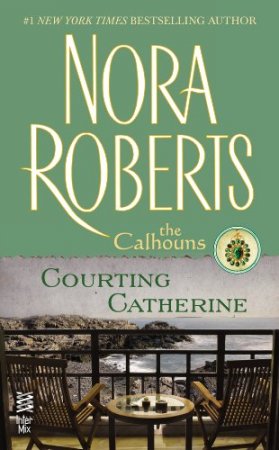 Courting Catherine
Courting Catherine Heaven and Earth
Heaven and Earth Face the Fire
Face the Fire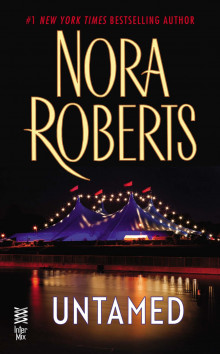 Untamed
Untamed Skin Deep
Skin Deep Enchanted
Enchanted Song of the West
Song of the West Suzanna's Surrender
Suzanna's Surrender Entranced
Entranced Dance of the Gods
Dance of the Gods Key of Knowledge
Key of Knowledge Charmed
Charmed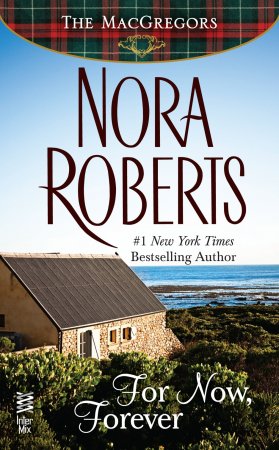 For Now, Forever
For Now, Forever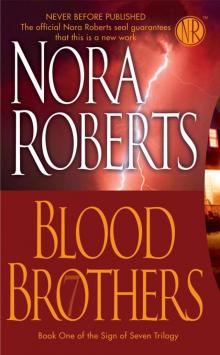 Blood Brothers
Blood Brothers Sweet Revenge
Sweet Revenge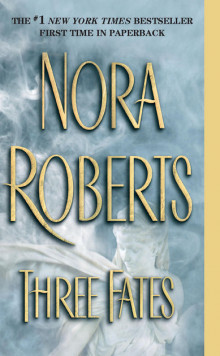 Three Fates
Three Fates Mind Over Matter
Mind Over Matter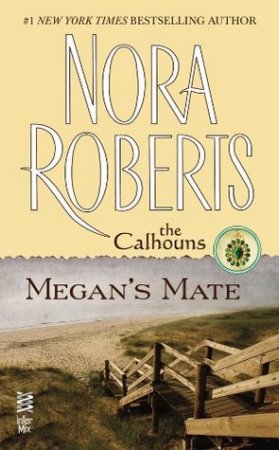 Megan's Mate
Megan's Mate Valley of Silence
Valley of Silence Without A Trace
Without A Trace The Law is a Lady
The Law is a Lady Temptation
Temptation Dance to the Piper
Dance to the Piper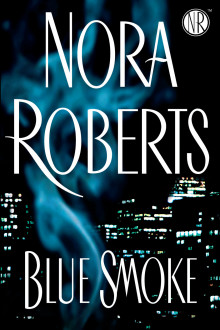 Blue Smoke
Blue Smoke Black Hills
Black Hills The Heart's Victory
The Heart's Victory Sullivan's Woman
Sullivan's Woman Genuine Lies
Genuine Lies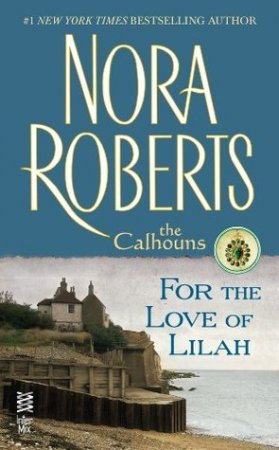 For the Love of Lilah
For the Love of Lilah Gabriel's Angel
Gabriel's Angel Irish Rose
Irish Rose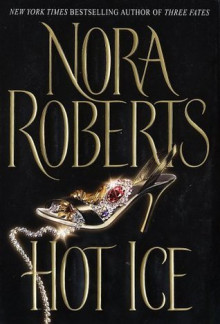 Hot Ice
Hot Ice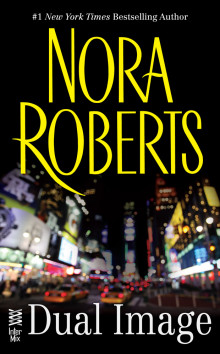 Dual Image
Dual Image Lawless
Lawless Catch My Heart
Catch My Heart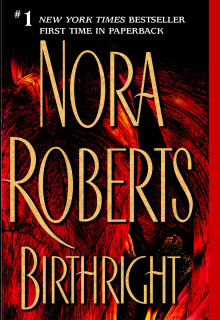 Birthright
Birthright First Impressions
First Impressions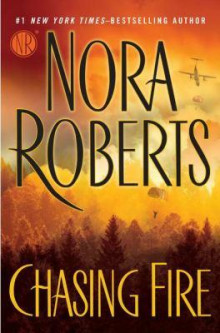 Chasing Fire
Chasing Fire Carnal Innocence
Carnal Innocence Best Laid Plans
Best Laid Plans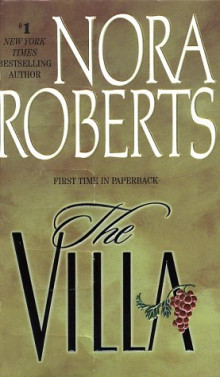 The Villa
The Villa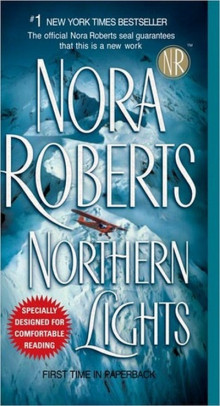 Northern Lights
Northern Lights Local Hero
Local Hero Island of Flowers
Island of Flowers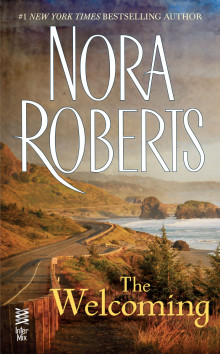 The Welcoming
The Welcoming All I Want for Christmas
All I Want for Christmas Black Rose
Black Rose Hot Rocks
Hot Rocks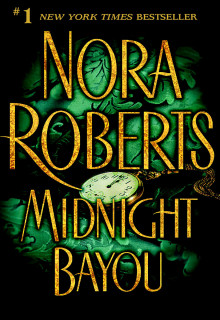 Midnight Bayou
Midnight Bayou The Art of Deception
The Art of Deception From This Day
From This Day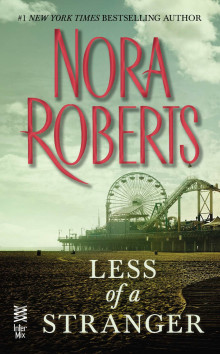 Less of a Stranger
Less of a Stranger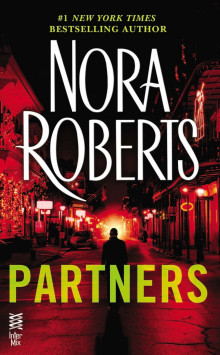 Partners
Partners Storm Warning
Storm Warning Once More With Feeling
Once More With Feeling Her Mother's Keeper
Her Mother's Keeper Sacred Sins
Sacred Sins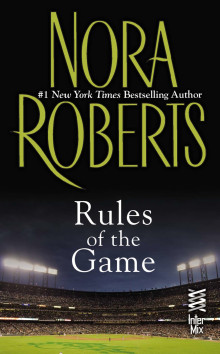 Rules of the Game
Rules of the Game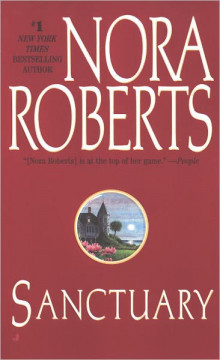 Sanctuary
Sanctuary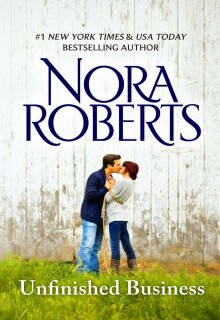 Unfinished Business
Unfinished Business Cordina's Royal Family Collection
Cordina's Royal Family Collection Dangerous Embrace
Dangerous Embrace One Summer
One Summer The Best Mistake
The Best Mistake Boundary Lines
Boundary Lines Under Currents
Under Currents The Stanislaski Series Collection, Volume 1
The Stanislaski Series Collection, Volume 1 The Rise of Magicks
The Rise of Magicks The Rise of Magicks (Chronicles of The One)
The Rise of Magicks (Chronicles of The One) The Awakening: The Dragon Heart Legacy Book 1
The Awakening: The Dragon Heart Legacy Book 1 Dance of Dreams
Dance of Dreams Skin Deep: The O'Hurleys
Skin Deep: The O'Hurleys The Quinn Legacy: Inner Harbor ; Chesapeake Blue
The Quinn Legacy: Inner Harbor ; Chesapeake Blue![[Chronicles of the One 03.0] The Rise of Magicks Read online](http://i1.bookreadfree.com/11/chronicles_of_the_one_03_0_the_rise_of_magicks_preview.jpg) [Chronicles of the One 03.0] The Rise of Magicks
[Chronicles of the One 03.0] The Rise of Magicks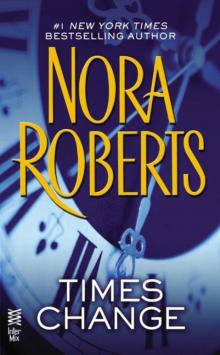 Times Change
Times Change Dance to the Piper: The O'Hurleys
Dance to the Piper: The O'Hurleys Christmas In the Snow: Taming Natasha / Considering Kate
Christmas In the Snow: Taming Natasha / Considering Kate Waiting for Nick
Waiting for Nick Summer Desserts
Summer Desserts Dream 2 - Holding the Dream
Dream 2 - Holding the Dream The Novels of Nora Roberts, Volume 2
The Novels of Nora Roberts, Volume 2 In the Garden Trilogy
In the Garden Trilogy Eight Classic Nora Roberts Romantic Suspense Novels
Eight Classic Nora Roberts Romantic Suspense Novels Best Laid Plans jh-2
Best Laid Plans jh-2 From the Heart
From the Heart Holiday Wishes
Holiday Wishes Dream 1 - Daring to Dream
Dream 1 - Daring to Dream Second Nature
Second Nature Summer Pleasures
Summer Pleasures Once Upon a Castle
Once Upon a Castle Stars of Mithra Box Set: Captive StarHidden StarSecret Star
Stars of Mithra Box Set: Captive StarHidden StarSecret Star Impulse
Impulse The Irish Trilogy by Nora Roberts
The Irish Trilogy by Nora Roberts The Pride Of Jared Mackade tmb-2
The Pride Of Jared Mackade tmb-2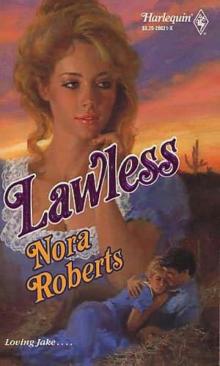 Lawless jh-3
Lawless jh-3 Taming Natasha
Taming Natasha Endless Summer
Endless Summer Bride Quartet Collection
Bride Quartet Collection Happy Ever After tbq-4
Happy Ever After tbq-4 Heart Of The Sea goa-3
Heart Of The Sea goa-3 Search for Love
Search for Love Once upon a Dream
Once upon a Dream Once Upon a Star
Once Upon a Star Dream Trilogy
Dream Trilogy Risky Business
Risky Business The Novels of Nora Roberts, Volume 3
The Novels of Nora Roberts, Volume 3 Dream 3 - Finding the Dream
Dream 3 - Finding the Dream Promises in Death id-34
Promises in Death id-34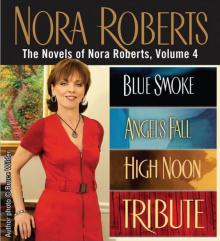 The Novels of Nora Roberts, Volume 4
The Novels of Nora Roberts, Volume 4 The Perfect Hope ib-3
The Perfect Hope ib-3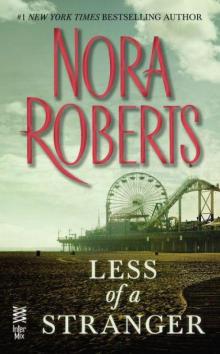 Less than a Stranger
Less than a Stranger Savour the Moment: Now the Big Day Has Finally Arrived, It's Time To...
Savour the Moment: Now the Big Day Has Finally Arrived, It's Time To... Convincing Alex
Convincing Alex Bed of Roses tbq-2
Bed of Roses tbq-2 Savour the Moment tbq-3
Savour the Moment tbq-3 Lessons Learned
Lessons Learned Key Of Valor k-3
Key Of Valor k-3 Red lily gt-3
Red lily gt-3 Savor the Moment
Savor the Moment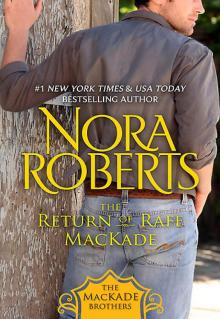 The Return Of Rafe Mackade tmb-1
The Return Of Rafe Mackade tmb-1 For The Love Of Lilah tcw-3
For The Love Of Lilah tcw-3 Black Rose gt-2
Black Rose gt-2 Novels: The Law is a Lady
Novels: The Law is a Lady Chesapeake Bay Saga 1-4
Chesapeake Bay Saga 1-4 Considering Kate
Considering Kate Moon Shadows
Moon Shadows Key of Knowledge k-2
Key of Knowledge k-2 The Sign of Seven Trilogy
The Sign of Seven Trilogy Once Upon a Kiss
Once Upon a Kiss The Novels of Nora Roberts, Volume 5
The Novels of Nora Roberts, Volume 5 Suzanna's Surrender tcw-4
Suzanna's Surrender tcw-4 The Quinn Brothers
The Quinn Brothers Falling for Rachel
Falling for Rachel Brazen Virtue
Brazen Virtue Time Was
Time Was The Gallaghers of Ardmore Trilogy
The Gallaghers of Ardmore Trilogy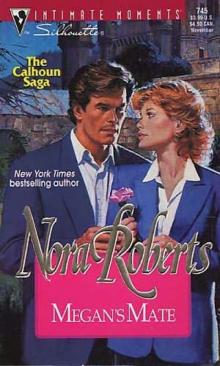 Megan's Mate tcw-5
Megan's Mate tcw-5 Loving Jack jh-1
Loving Jack jh-1 Rebellion & In From The Cold
Rebellion & In From The Cold Blue Dahlia gt-1
Blue Dahlia gt-1 The MacGregor Grooms
The MacGregor Grooms The Next Always tibt-1
The Next Always tibt-1 The Heart Of Devin Mackade tmb-3
The Heart Of Devin Mackade tmb-3 The Novels of Nora Roberts Volume 1
The Novels of Nora Roberts Volume 1 Treasures Lost, Treasures Found
Treasures Lost, Treasures Found Nora Roberts's Circle Trilogy
Nora Roberts's Circle Trilogy The Key Trilogy
The Key Trilogy The Fall Of Shane Mackade tmb-4
The Fall Of Shane Mackade tmb-4 A Will And A Way
A Will And A Way Jewels of the Sun goa-1
Jewels of the Sun goa-1 Luring a Lady
Luring a Lady